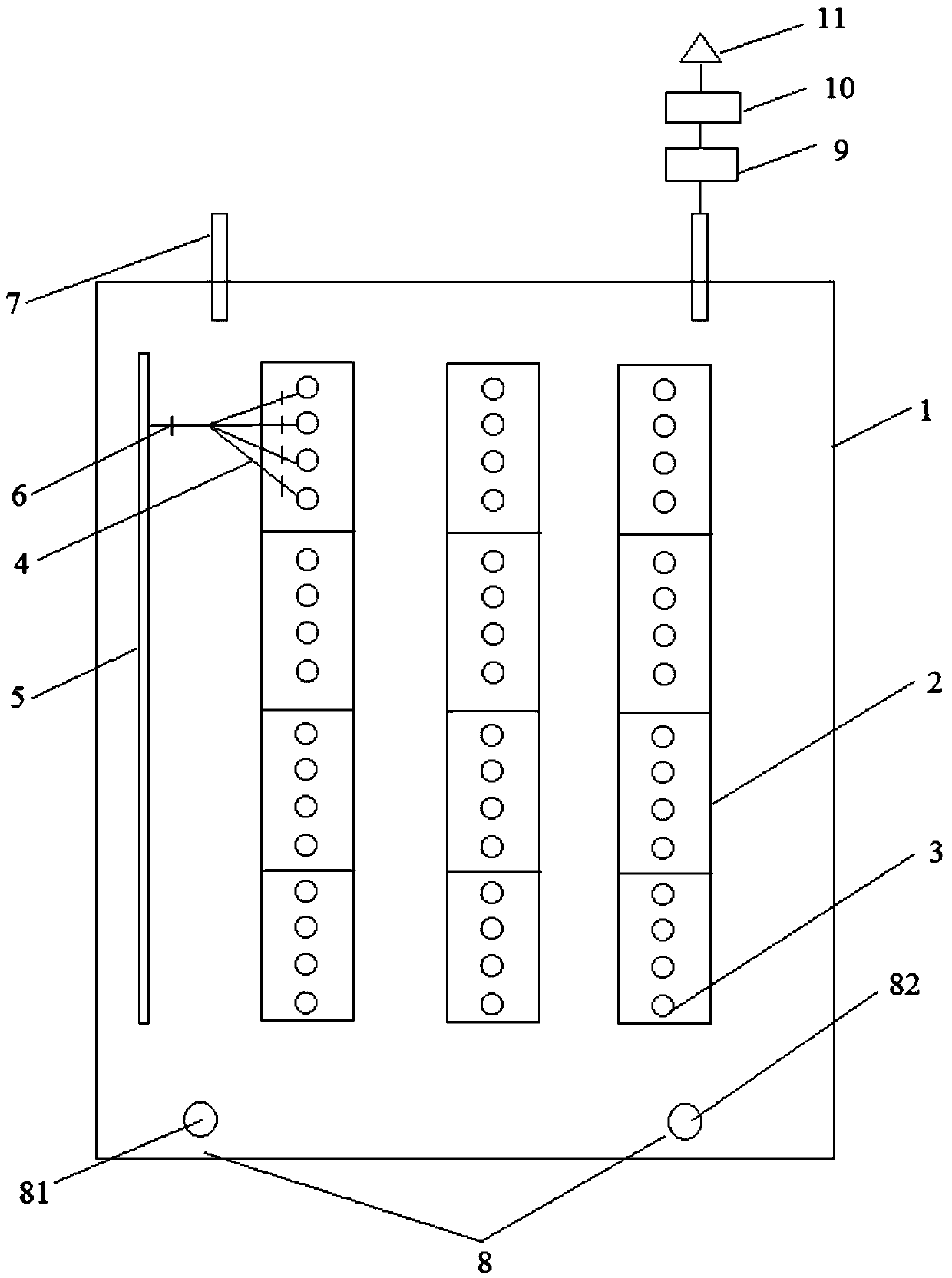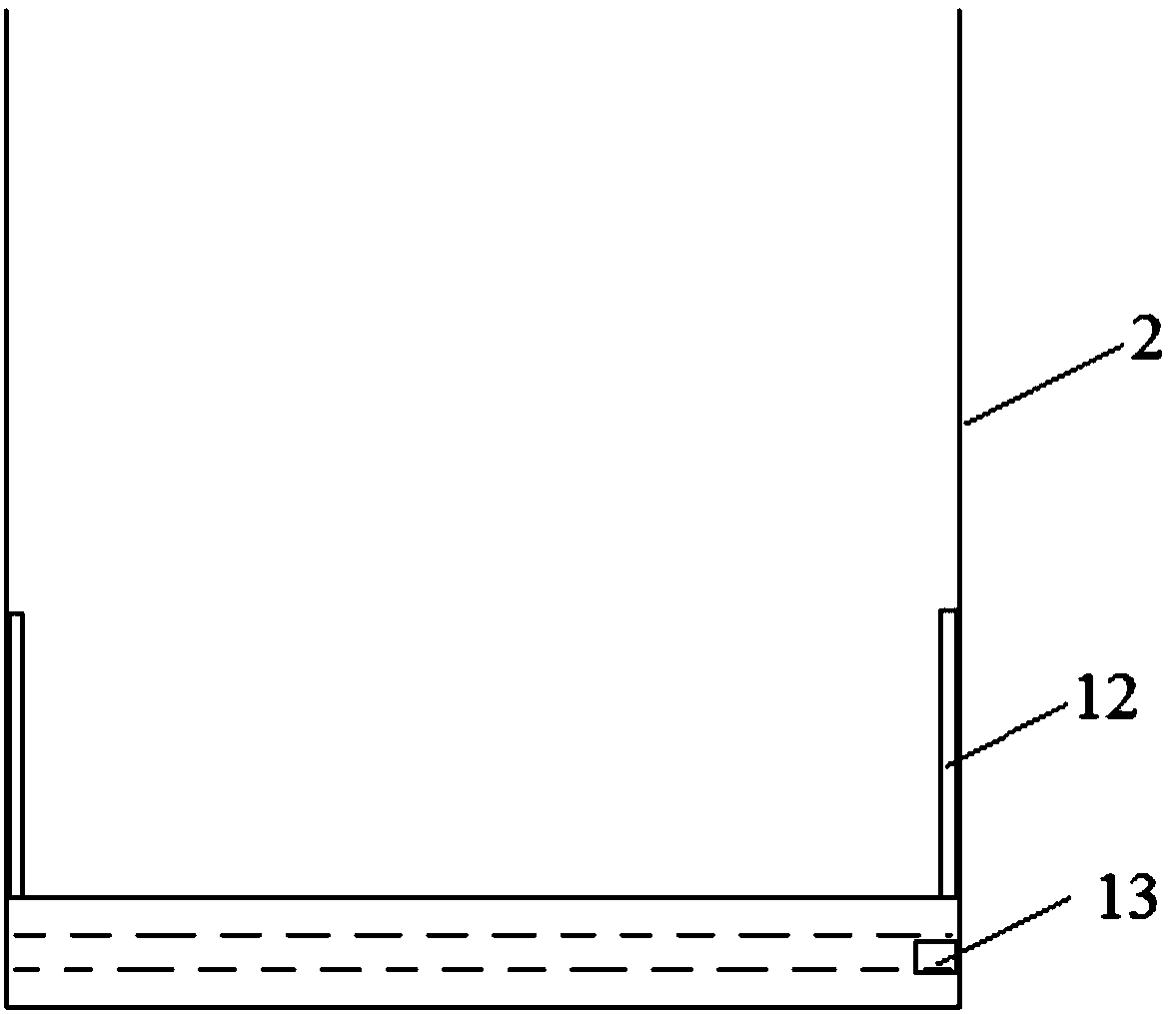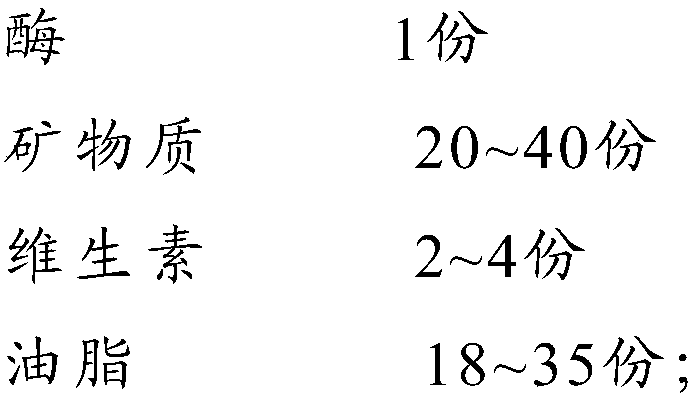Crayfish larva breeding method of sherax quadricarinatus
The technology of a freshwater lobster and a cultivation method, which is applied in the field of aquaculture, can solve the problems of difficulty in large-scale cultivation, low survival rate of shrimp fry, and high cultivation cost, and achieve the effects of being less prone to spoilage, maintaining a stable growth environment, and having an excellent growth environment.
- Summary
- Abstract
- Description
- Claims
- Application Information
AI Technical Summary
Problems solved by technology
Method used
Image
Examples
Embodiment approach
[0034] According to a preferred embodiment of the present invention, the oxygen of the oxygen increasing device 3 is supplied through the oxygen supply pipeline 4, wherein,
[0035] Each oxygen increasing device is respectively connected with the corresponding oxygen supply pipeline, and a valve 6 is arranged between the oxygen increasing device and the corresponding oxygen supply pipeline.
[0036] In a further preferred embodiment, in the same net cage, the ends of the plurality of oxygen supply pipelines 4 away from the aeration device 3 are converged with each other and then connected to the main pipeline 5. Between the converging end and the main pipeline 5, a valve 6.
[0037] The inventors have found that different specifications of shrimp seedlings have different oxygen requirements in the cultivation process. In the present invention, preferably, the shrimp seedlings of different specifications can be placed in different net cages, and then through the independently c...
Embodiment 1
[0251] Adopt the method for cultivating shrimp seedlings of the present invention to cultivate, the steps are as follows:
[0252] Step 1, set up a rectangular cement pond with a specification of 6 × 3.5m as a nursery pond, set 3 net cages inside it, and set 4 60-purpose air stones in each net cage to increase oxygen;
[0253] Lay the silt cultivated by shrimp seedlings in the established seedling ponds, and then inject culture water exposed to the sun for 3 to 5 days into the seedling ponds. quicklime disinfection;
[0254] Then set the sunshade net, adjust the water temperature of the aquaculture water body to be 28°C, the dissolved oxygen in the water to be 10 mg / L, and the pH of the water body to be 7.5.
[0255] Step 2: Before putting the shrimp seedlings in, take a small amount for "hydrophilic" observation. After 24 hours of observation, there is no abnormality in the shrimp seedlings, and the rate is 1000 fish / m 2 Throw in shrimp seedlings with a body length of 0.6 t...
Embodiment 2
[0271] The method used in this example is similar to Example 1, the difference is that the dissolved oxygen in the water in step 1 is 12 mg / L.
PUM
 Login to View More
Login to View More Abstract
Description
Claims
Application Information
 Login to View More
Login to View More - R&D
- Intellectual Property
- Life Sciences
- Materials
- Tech Scout
- Unparalleled Data Quality
- Higher Quality Content
- 60% Fewer Hallucinations
Browse by: Latest US Patents, China's latest patents, Technical Efficacy Thesaurus, Application Domain, Technology Topic, Popular Technical Reports.
© 2025 PatSnap. All rights reserved.Legal|Privacy policy|Modern Slavery Act Transparency Statement|Sitemap|About US| Contact US: help@patsnap.com



